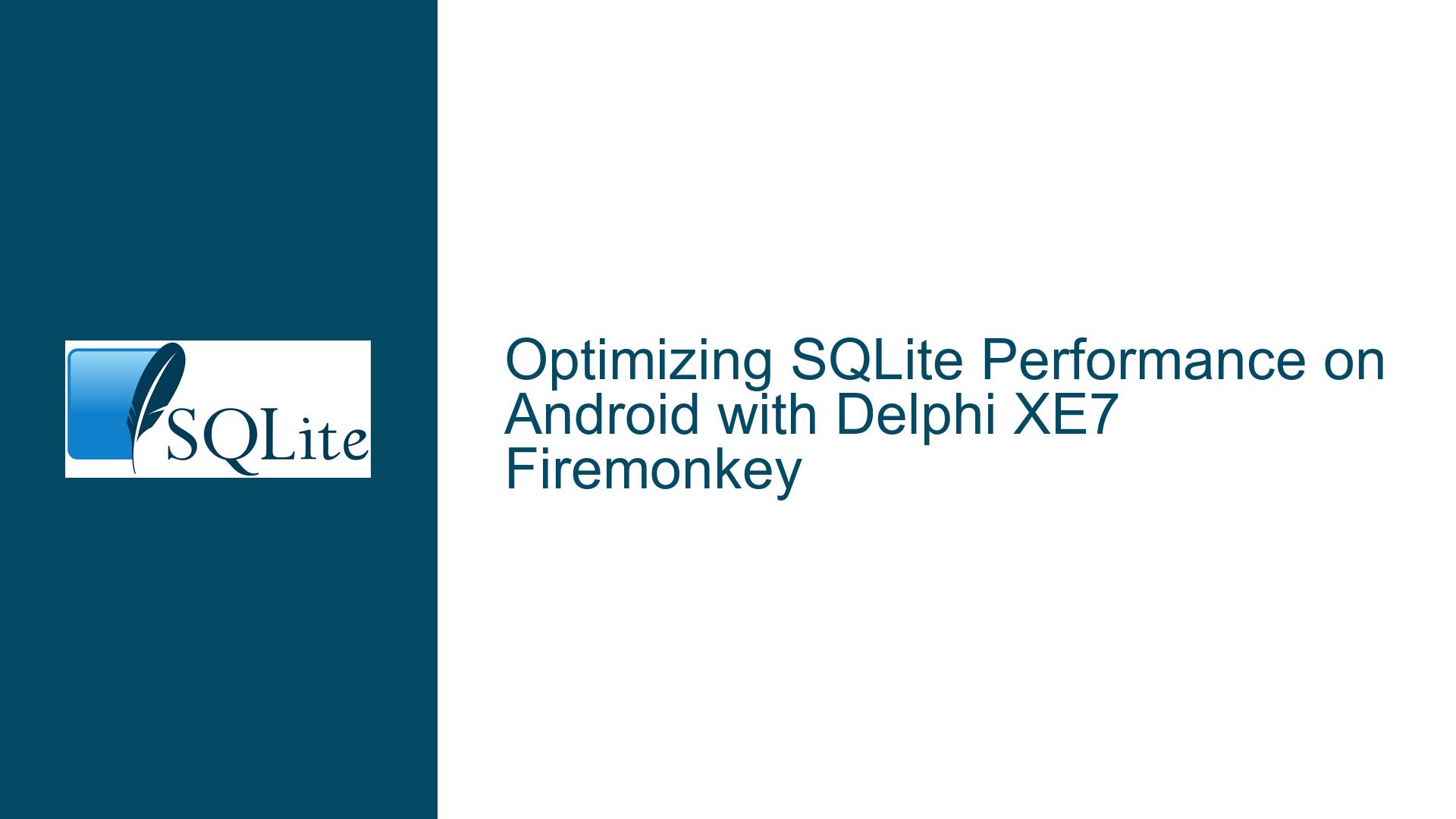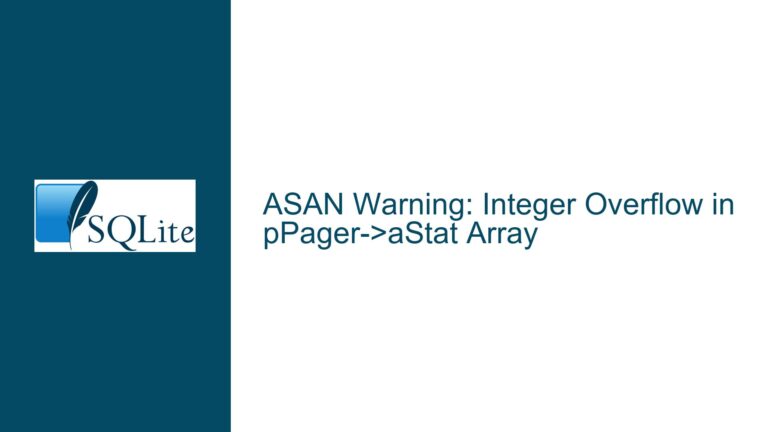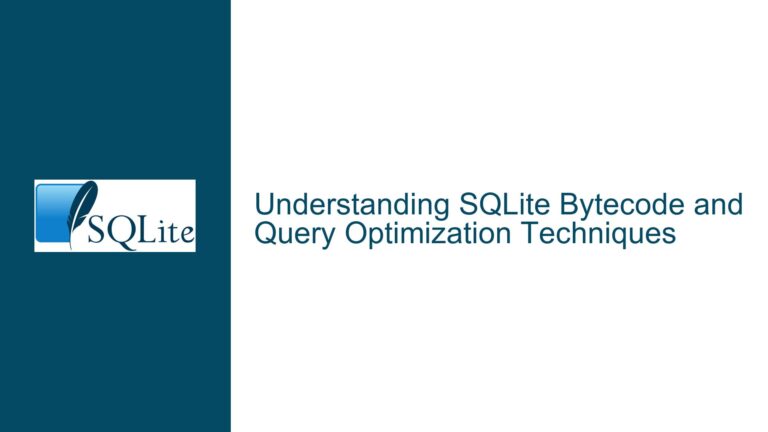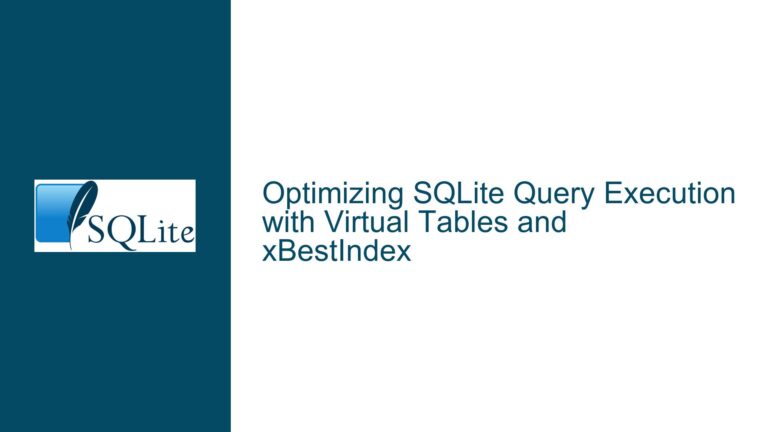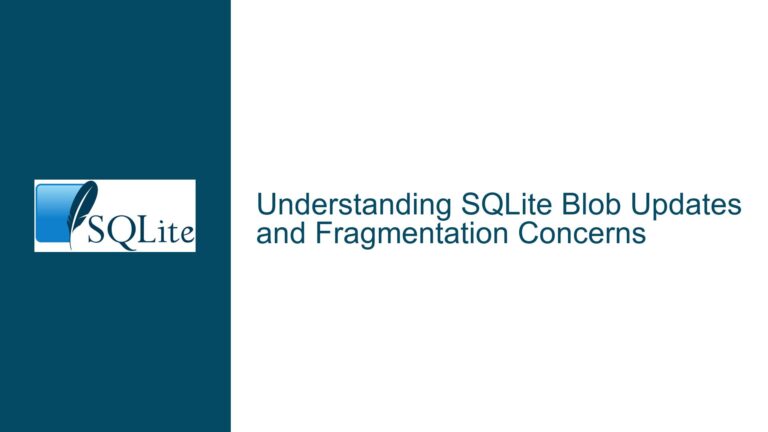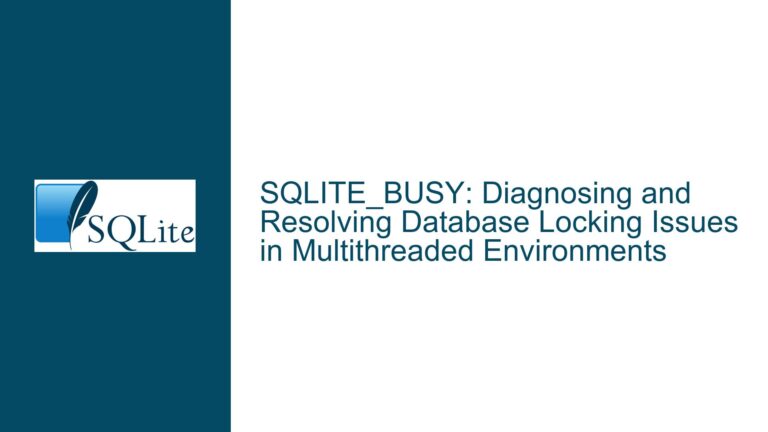Optimizing SQLite Performance on Android with Delphi XE7 Firemonkey
SQLite Query Performance Degradation on Android Deployment
When working with SQLite databases in a Delphi XE7 Firemonkey application, a common issue that arises is the significant performance degradation when deploying the application to Android devices. Specifically, the problem manifests as a delay of 5 to 6 seconds when loading data from a table into a Memo component. This table typically contains a mix of data types, including an INTEGER primary key, TEXT fields, and a BLOB field. The same operation, when executed on a Windows environment, performs without any noticeable lag. Additionally, using tools like DB Browser for SQLite shows no performance issues, indicating that the problem is not with the SQLite database itself but rather with the interaction between the Delphi XE7 Firemonkey framework and the Android environment.
The core of the issue lies in the way Delphi XE7 Firemonkey handles database operations on Android. The framework’s database connectivity tools, which are designed to abstract the underlying database operations, may introduce inefficiencies when dealing with the Android file system. This is particularly evident when handling BLOB data, which can be resource-intensive to read and write. Furthermore, the age of Delphi XE7 means that it may not be fully optimized for modern Android file system behaviors, leading to additional overhead.
Firemonkey Framework and Android File System Interactions
The primary cause of the performance degradation is the interaction between the Delphi XE7 Firemonkey framework and the Android file system. Firemonkey’s database connectivity tools are designed to provide a unified interface for database operations across different platforms. However, this abstraction can introduce inefficiencies, especially when dealing with the Android file system, which has its own set of peculiarities and optimizations.
One of the key factors contributing to the slowdown is the way Firemonkey handles BLOB data. BLOBs, or Binary Large Objects, are used to store large amounts of binary data, such as images or documents. Reading and writing BLOB data can be particularly resource-intensive, and if not handled efficiently, can lead to significant performance bottlenecks. In the case of Delphi XE7 Firemonkey, the framework’s handling of BLOB data on Android may not be optimized, leading to the observed delays.
Another factor is the age of Delphi XE7. As Android has evolved, so too have its file system behaviors and optimizations. Delphi XE7, being an older version of the Delphi IDE, may not be fully aware of these changes, leading to suboptimal performance when interacting with the Android file system. This is particularly true for operations that involve frequent read/write cycles, such as those involving BLOB data.
Additionally, the presence of background processes, such as antivirus or anti-ransomware software, can further exacerbate the performance issues. These processes may interfere with file operations, introducing additional latency. While this is not directly related to the Firemonkey framework, it is a factor that can contribute to the overall performance degradation.
Enhancing SQLite Performance with Direct API Calls and Modernization
To address the performance issues when deploying SQLite-based Delphi XE7 Firemonkey applications to Android, several strategies can be employed. The most effective approach is to bypass the Firemonkey database connectivity tools and use direct API calls to the SQLite library. This approach eliminates the overhead introduced by the Firemonkey framework and allows for more efficient interaction with the SQLite database.
Direct API calls to the SQLite library can be implemented using the SQLite3 unit in Delphi. This unit provides a set of functions that allow direct interaction with the SQLite database, bypassing the Firemonkey database connectivity tools. By using these functions, developers can have finer control over database operations, leading to improved performance. For example, instead of using the Firemonkey TFDConnection and TFDQuery components, developers can use the SQLite3 unit to open the database, execute queries, and retrieve results.
Another strategy is to modernize the development environment. Delphi XE7, while still functional, is an older version of the Delphi IDE and may not be fully optimized for modern Android file system behaviors. Upgrading to a newer version of Delphi, such as Delphi 10.4 Sydney, can provide significant performance improvements. Newer versions of Delphi include optimizations for Android file system interactions and improved support for modern Android APIs.
In addition to upgrading the development environment, optimizing the database schema and queries can also lead to performance improvements. For example, indexing the columns used in WHERE clauses can speed up query execution. Similarly, minimizing the use of BLOB data or optimizing the way BLOB data is stored and retrieved can reduce resource usage and improve performance.
Finally, it is important to consider the impact of background processes on database performance. Ensuring that the Android device is free from resource-intensive background processes, such as antivirus or anti-ransomware software, can help reduce latency and improve overall performance.
In conclusion, the performance degradation observed when deploying SQLite-based Delphi XE7 Firemonkey applications to Android is primarily due to the interaction between the Firemonkey framework and the Android file system. By bypassing the Firemonkey database connectivity tools and using direct API calls to the SQLite library, modernizing the development environment, optimizing the database schema and queries, and minimizing the impact of background processes, developers can significantly improve the performance of their applications.
